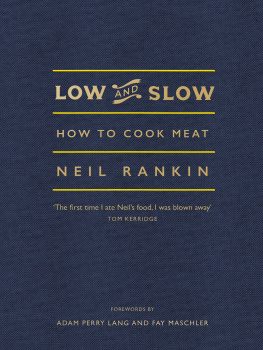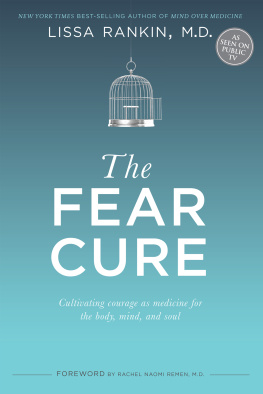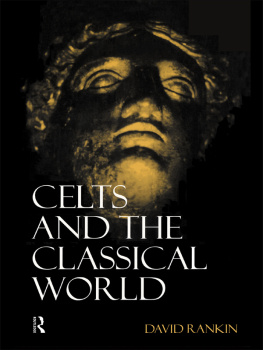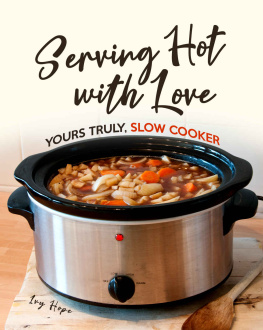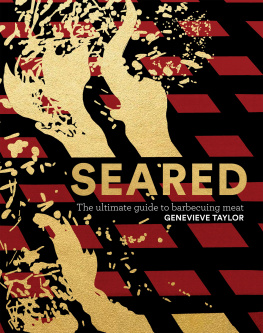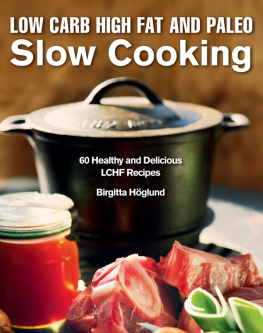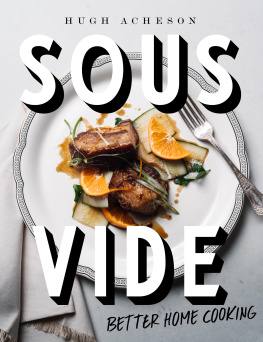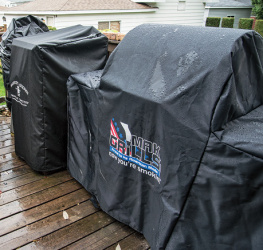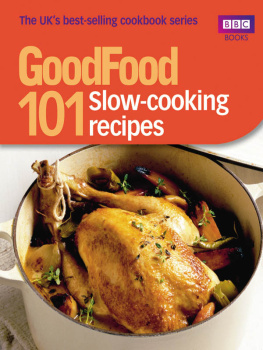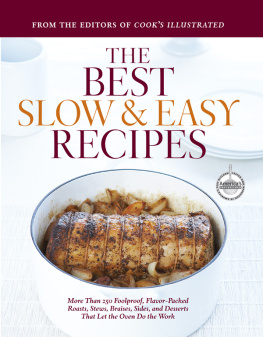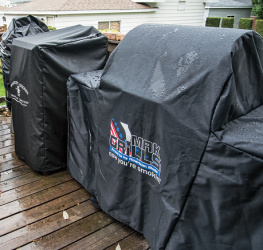About the Book
If you have ever cooked a steak medium-well instead of medium-rare, a chicken that ends up dry and tasteless, a stew thats tough or stringy or a rack of ribs that falls a little too much off the bone then this is the book that will make your life that little bit better.
This book is about slow cooking. Not meaning that slow cooker you got as a wedding gift that you never use and takes up valuable kitchen space or some big outdoor smoker that most people just dont have, but cooking using anything from frying pans, ovens, pots, grills and affordable outdoor barbecues. Its also not just about tough cuts of meat but also steaks, roasts, burgers and barbecue joints as well as lots of other things you might never have dreamed of slow-cooking at low temperatures!
This is a step-by-step guide to cooking low and slow and why it benefits almost everything you cook and not just big hairy barbecue chefs like me. Neil Rankin
About the Author
Neil Rankin has cooked in fine-dining restaurants Rhodes 24 and Chez Bruce. While working at Barbecoa he discovered a love for charcoal and as head chef for Pitt Cue then John Salt he modernised meat cookery and made barbecue hot.
In autumn 2013 Neil opened Smokehouse in Islington, where indoor barbecue meets fine-dining pub fare. He opened Bad Egg, an American-diner style restaurant celebrating the humble egg, in 2014 and a second Smokehouse in Chiswick in spring 2015. Amongst Neils new ventures are a monthly recipe column in The Independent and London Union, an exciting street food venture.
Contents
Preface
These sections are usually filled with a culinary journey from a chefs childhood, telling tales of family holidays to France or a mother who taught them to bake bread or make fresh pasta from an early age. You imagine a kind of shabby chic, Aga-sponsored dream sequence, where a boy who was raised by pigs and grew up in an organic vegetable patch ends up in a professional kitchen at 15 washing dishes, embarks on his dream career and lives happily ever after. I dont have that kind of story to tell.
I grew up in Edinburgh and studied physics in Salford. I went on to do a few odd jobs as a Sound Engineer and to open my own business at 25. I started my professional cooking really, really late in life after moving to London. A few regrettable decisions and a financial crash forced me to make another career change and I chose, against all the best and reliable advice given to me, to become a chef.
I started training at a Cordon Bleu school and then pushed myself through some of the toughest Michelin-starred kitchens that would let me through the door. Sometimes I was accepted and nurtured, but most of the time I was written off as someone too old to learn new tricks. On the contrary, though, I did learn fast and worked on my own ideas and dishes on my days off (of which there were very few). I started doing supper clubs and a few private events, and even had a blog about cooking science that I have long since deleted because most of the dishes made me cringe. It took six years of working 80+ hour weeks before someone sent me in a truly life-changing direction.
Adam Perry Lang is part of the reason I am who I am today. He changed the way I looked at cooking and gave me the confidence to discover for myself the way things should be cooked. I owe him much more than he knows and I also know he doesnt ever expect me to tell him as much. Adam introduced me to the basics of how meat should be cooked, and over the years Ive taken his methods and developed quite a few of my own theories too, some of which he probably disagrees with.
Ive cooked a hell of a lot of meat in my time. Ive built barbecues by hand to cook 15 goats for thousands of people; smoked thousands of ribs, briskets and chickens, and every piece possible of cows, goats, pigs, lambs and game; and cooked too many steaks on a grill to mention. Ive also overcooked thousands of steaks, over-brined turkeys, cured brisket until it turned purple, cried at how many pork shoulders I ruined at once (and had to open a street food cart with them the next day), and cooked whole pigs whilst drunk then fell asleep on the floor behind a bar. Even whilst writing this book, I managed to overcook a 4kg rib of beef because I was watching Daredevil with the volume up too loud at 11pm and missed my high-tech meat alarm. I think the sheer amount of failures Ive witnessed, or executed myself, makes me a better judge of how you should and shouldnt cook meat and goes further than my successes to explain why you should be listening to me at all.
I have an unbreakable passion for meat butchery and cookery, and for the animals to have lived a good, happy life. Its essential for me that the restaurants I work in use only meat that has been bred by small, trusted farms. Where we can, we butcher everything on site, then smoke the meat in a traditional smoker over English oak or grill over charcoal on a robata-style grill. My teams have an attention to detail and knowledge of meat cookery that surpasses most starred restaurants Ive eaten in. We dont do things the easy way but we also dont make it hard for the sake of it. We make it the hard way because it tastes better and we enjoy working this way.
Cooking with the understanding of how to cook is becoming a forgotten art. However, real butchery and meat cookery is going through something of a renaissance right now and I really hope this continues. I also hope that, with this book, I can play a small part in making a positive change.
I can say without a shadow of a doubt that I love what I do. Im lucky to be where I am today and I still have a huge amount to learn. I have no regrets and the meat smells are still fantastic.
Neil Rankin
Foreword by Adam Perry Lang
The reason you picked up this book might be the same reason why I zeroed in on Neil the week we opened Barbecoa in London. It was 2011 and Id just acquired a wood-burning tandoor. We bonded over a particular dish, tandoor-charred squid with smashed avocado.
The dish sounds dramatic, and it was, for all the wrong reasons. For the type of service we were running, it was impractical, requiring too much time and attention. The squid strangled the service, frustrating Neil to the point that he was yelling a lot. He could not produce the little bastards fast enough. I was by his side watching him struggle and admiring his commitment to that squid. He stayed focused, positive and intent on conquering the dish which he couldnt and this gave me a deep appreciation for Neil.
As we cooked together more frequently it occurred to me that a mark of a great cook one of the qualities that separates everyday cooks from the great ones is curiosity. Its not a trait that can be learned. You have it or you dont. Neil has it. (People who bother to read forewords tend to have it too, so congratulations.)
I use the term cook instead of chef in this instance as a compliment. Its an important distinction. By todays standards, you dont have to be a good cook to be a functioning chef. Many chefs are trained primarily as administrators/culinary technicians. Chefs have access to computers that calculate cook cycles and regulate temperatures and other technology that can monitor almost every single aspect of cooking protein. We have latex gloves, vacuum-sealed bags, clipper-tie bags with cook-chill-retherm cycles to bring food back to life. The process aims to eliminate human error. The modern day chef has so much control, its hard for mistakes to happen. While this type of chef is necessary and a tremendous asset when feeding large numbers of people fast, there can be a massive disconnect between the chef and the meal.

